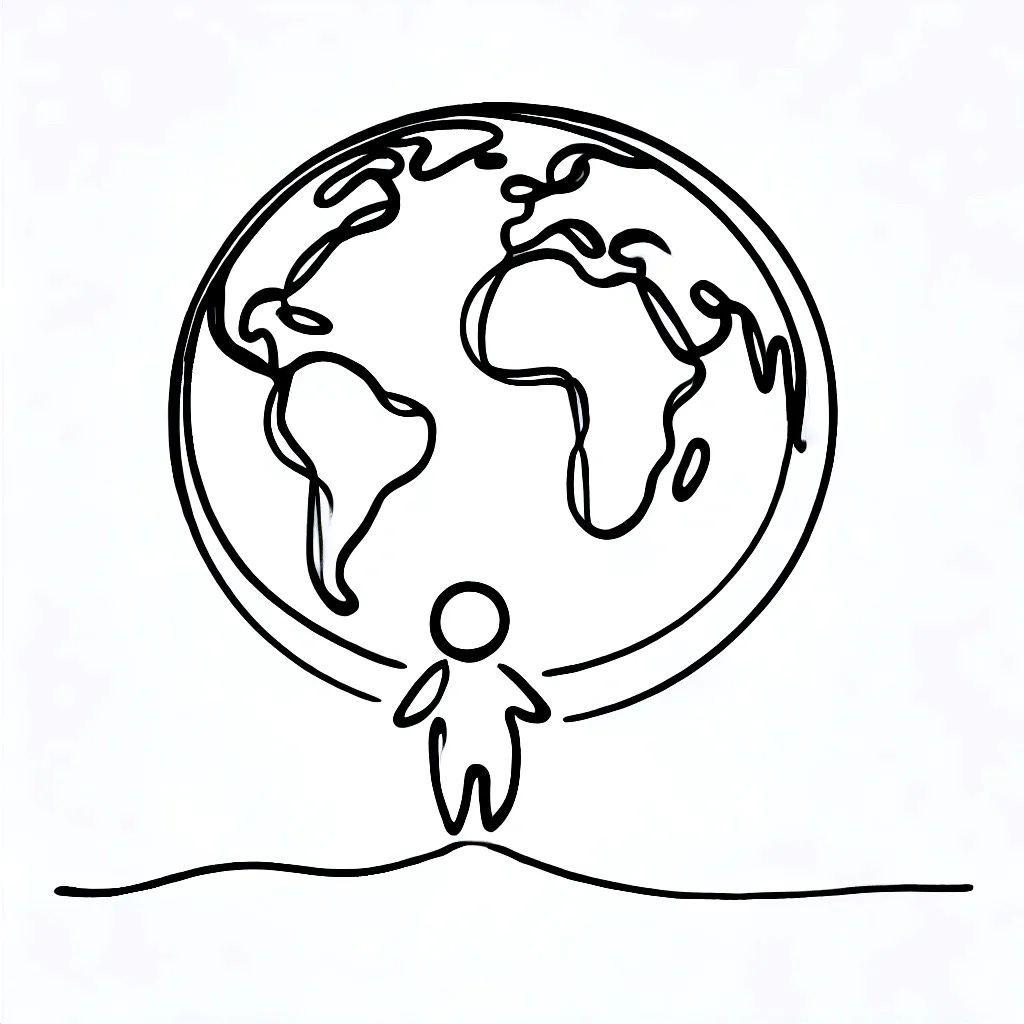Friend or foe?
Who to know: Playing to win from 2025 to 2050 as the global economy doubles.
Do you think of countries and determine if the people there are friends or foes? Who is on limits or off limits? Does this shift depending on the stance of world leaders and which nations they are on friendly terms with?
Basing strategic alliances or oppositions solely on the short-term actions of today’s world leaders can severely limit a leader’s or business’s long-term success. With the global economy set to more than double by 2050, it pays for leaders to adopt a broad, flexible strategy to navigate the shifting economic landscape effectively.
If you’re aiming to win in 2025 or over the next five or 25 years, who you consider a friend or foe today will directly impact your success tomorrow.
Zoom-Out: 2050 Economic Forecast
It’s crucial to see where economic growth will take place.
According to Goldman Sachs, by 2050, the global economic landscape will undergo significant changes. Asia, excluding Developed Markets (DM), is projected to dominate, contributing 40% to the global GDP, marginally surpassing the DM’s 36%. This represents a dramatic shift from 2000 when DMs accounted for over 77% of global GDP. Key growth economies will include India, Bangladesh, and the Philippines, thriving due to their youthful populations and burgeoning workforces. Conversely, traditional powerhouses like China are expected to see slower growth rates.
Visual Capitalist. (2023). The Global Economy in 2050. [Infographic]. Goldman Sachs Global Investment Research.
In Latin America, despite previous setbacks, countries like Brazil are anticipated to surpass some developed nations in economic rankings. However, Indonesia is poised to overtake Brazil as the largest emerging market. This diverse economic projection confirms the necessity for business leaders to look beyond the immediate horizon and prepare for an economic environment that differs from the past and the present.
Zoom-In 2025: World Leaders’ Policies
Equally crucial is to assess the policies of world leaders over their time in power and make smart judgements on whether to align with these or advance beyond them.
As of January 2025, the world’s leadership will involve a blend of nationalist and globalist tendencies. U.S. policies under Donald Trump will be notably nationalistic, focusing on stringent immigration controls and protectionist trade measures. Conversely, the European Union, under Ursula von der Leyen, will continue to promote a more globalist agenda, tackling universal challenges like climate change and digital transformation, despite some nationalist undercurrents within the bloc.
The Economist cover image, November 9, 2024.
China, under Xi Jinping, will continue to push for national rejuvenation while participating in global trade initiatives like the Belt and Road Initiative. Other leaders, such as Narendra Modi and Vladimir Putin, will continue to promote strong nationalist agendas, which influence their domestic and foreign policies. However, global engagement will remain a part of their strategy, albeit selectively.
Zero-In 2025: Strategic Implications for Business Leaders
For business leaders and organizations aiming for success in 2025, or over the next five or 25 years, setting strategies in a dynamically changing global economy is essential. Aligning too closely with the fluctuating and often short-term priorities of current world leaders can be a risky strategy. Instead, a more effective approach involves:
Focusing on the problem you and your team solve, driving towards a solution, rather than the location.
Building a network of people who inspire, instruct, and invite cooperation or collaboration, and let this not be dependent on where they are based.
Adopting a global view, exploring how trends, technologies, and threats represent opportunities to connect, collaborate, and co-create positive-sum wins.
Play to Win
While it may be tempting to categorise people in nations as either friends or foes based on the current policies of world leaders, such myopic classifications can restrict potential opportunities in a future where global economic power will be more distributed.
There is more to the world than what we see.
When we see the bigger picture, we can play a bigger game.
If you’re playing to win, it pays to think, act, and lead globally, beyond the status quo.
It pays for business leaders to cultivate a nuanced understanding of global trends and develop resilient strategies that transcend current political landscapes to achieve positive-sum success in the coming decades.
Think of the world. As a leader or an organization:
Who is your friend? Who is your foe?
Who could you contact and form a connection with, even if it goes against the tide?





This resonates from macro to micro levels. Even at the level of the individual or small groups, it is an entirely human tendency to go tribal in conditions of uncertainty. Us versus them. And when we are unaware and give in to these tendencies, from family relations to our view of individuals whose opinions differ from ours, we divide but do not conquer. I think you have hit on an important strategy that is not only commercially smart but also, in seeing the good or the big picture (and thus not demonizing or shaming those who are different), maybe there is even a path to healing what ails this world right now. I have, of course, been accused of being a polly anna, so take my thoughts with a grain of salt. :)
Enormously helpful summary of global trends, especially the nationalist vs global energies coming from world leaders. Working on opening up professional relationships in S America and Asia in order to diversify my client base. Sticking to 'old' markets feels just too risky.